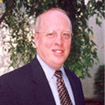Commentary on 1 Corinthians 12:12-31a
This week’s epistle lesson continues last week’s conversation, as the apostle Paul continues to address two central concerns he has for the Corinthian congregation: (1) They have become such a conflicted, internally embattled congregation that (2) they have strayed from their essential identity and purpose—to be the church of God that was created by the Spirit to serve Christ and the people of Corinth.
This week, the conversation shifts its emphasis. Paul has already reminded them that God abundantly offers a variety of gifts, with different combinations of gifts for different people, according to the Spirit’s choosing. There’s plenty of wisdom, knowledge, faith, healing, powerful deeds, prophecy, discernment, “tongues,” and “interpretation of tongues” to go around (12:4–10). Rather than expecting everyone to be like you and your friends, Paul said, celebrate the differences graciously provided by the Spirit, the Lord, the God who called you all together.
Now Paul flips the perspective: Keep in mind though, just as your own human bodies each contain many different parts, together they make up your one body (12:12). All the different members live and move and have their being as part of a greater whole. “For in the one Spirit we were all baptized into one body … and we were all made to drink of one Spirit” (12:13).
Paul had made this point earlier in the letter, where he said, “In every way you have been enriched in [Christ] … so that you are not lacking in any gift” (1:4–7). In fact, “you were called,” not into a relationship limited to yourself and your own faction, but into “the partnership of his Son, Jesus Christ our Lord” (1:8).
Paul expounded on that theme in an extended exhortation (1:9–3:9) that concluded, “For we are God’s coworkers, working together; you are God’s field, God’s building” (3:9). His very mixed metaphor points to a singular purpose: We are God’s coworkers. It’s God’s church. By working together, you serve as God’s field, God’s fertile ground, producing an abundant harvest. You, together, are God’s building, God’s shelter, God’s gathering place for all who seek fullness of life.
In chapter 12, Paul uses a different metaphor to describe how differing gifts strengthen the community and increase its capabilities: If the whole body was just an eye, how could it hear? If it could only hear, how could it smell? The eyes can’t say to the hands, “I don’t need you.” The head can’t say to the feet, “I don’t need you” (12:14–19).
There are more-honored parts of the body—the eyes, hands, head, and feet—and less-honored parts of the body—diplomatically described in a doctor’s office brochure as “the parts of your body usually covered by your underwear.” But in both public and private, we depend on those less-honored parts of the body to do their jobs (12:22–25). Drastic consequences can follow when they do not, affecting the capabilities and vitality of the whole body.
Paul then abruptly jumps out of the metaphor, applying it to the literal world of the Corinthian church: God creates and arranges the one body of this church with the intention that everyone find equal respect and honor and that people don’t constantly fight with one another (12:24b–25).
His admonition that “there be no dissension” within the body (12:25) does not mean members will not or should not disagree or have conflicts. Conflict is inevitable and in most cases is solvable to the benefit of the whole. “No dissension” means not letting conflicts devolve into opposing, armed camps. God calls a diverse, variously gifted body of believers together so that “the members may have the same care for one another,” so that “if one member suffers, all suffer together … if one member is honored, all rejoice together” (12:25–26). This dynamic stands as an essential element of congregational life that enduringly matters.
Over the last four decades, different foci have captured the spotlight as “the” necessary center of a congregation’s efforts. “Church is about church growth. Increased numbers increase a congregation’s ability to fulfill its mission.” Okay, sure, an often-overlooked focus (though often seized upon more for budget-balancing than for mission). “Church is about justice. Focusing on justice increases a congregation’s ability to fulfill its mission.” Again, yes, an essential, often-overlooked focus.
Paul, though, celebrates seeking a diversity of gifts in the same body because God creates bodies of believers capable of sustaining multiple points of focus. All those gifts mentioned above apply to, inform, and energize action for church growth and for justice, and for many other important ministries. Anything that a member or a congregation does will be improved with wisdom, knowledge, healing, discernment, and so on. A multiplicity of gifts and attention pointed in the right directions, according to the Spirit’s choosing, also increases a congregation’s ability to fulfill its mission, whatever it may be.
Paul does not say that every congregation should be everything to everybody. He does affirm, however, that in order to sustain its ministries, a congregation’s members must focus on attending to each other. God’s gifts certainly empower congregations to minister to and in the world around them. They also energize a congregation’s capacity to care for one another in the midst of all the ways the world resists them and beats them down.
On any given day or night, we have no idea of the weariness and heavy-ladenness that accompany those who walk through God’s churches’ doors. Every congregation—from among the totality of its gifts—remains called to provide a setting where people can find the care they need. The Spirit will gift the congregation as needed to do just that.
Epilogue
After noting all the ways the gifts described so far can make our ministries thrive, Paul promises to show us (next week) “a still more excellent way,” the most essential way of all.


January 26, 2025